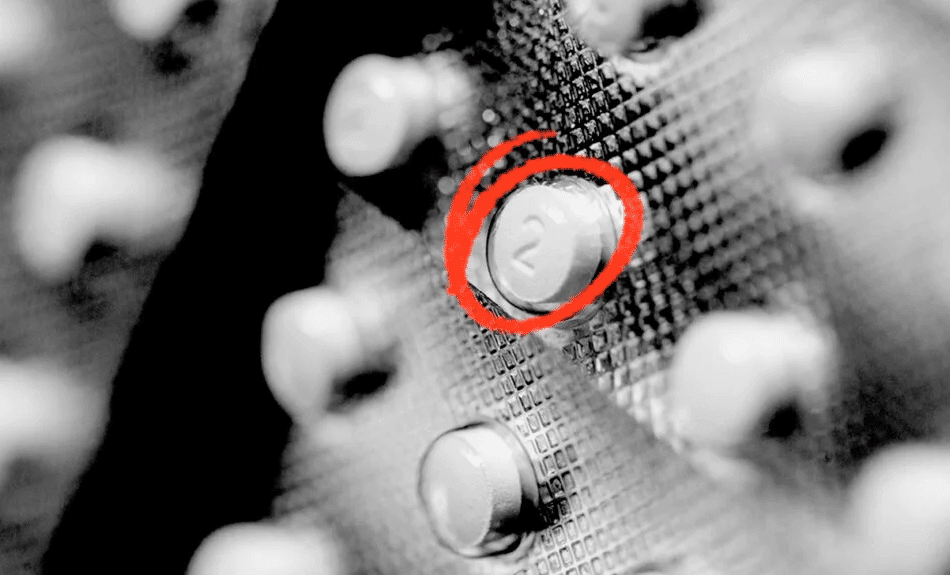Table of Contents
Last updated on January 14th, 2024 at 02:49 pm
Clenbuterol, often referred to as ‘clen,’ is a compound that has gained attention in various fields, particularly among athletes and bodybuilders. While it’s known for its fat-burning properties, a significant side effect associated with its use is clenbuterol cramps. This blog post delves into the causes of these cramps, preventive measures, and how to manage them effectively.
What are Clenbuterol Cramps?
Clenbuterol cramps, resulting from clenbuterol usage, cause agonizing muscle spasms, ranging from mild discomfort to intense pain, impacting diverse muscle groups. It is imperative to comprehend the mechanism triggering these cramps to effectively prevent and treat them.
Moreover, adopting a proactive approach in recognizing early signs of clenbuterol-induced cramps enables users to implement preventive measures promptly. By incorporating targeted exercises and adequate hydration, individuals can mitigate the severity and frequency of cramping episodes.
Transitioning from a reactive to a proactive stance involves monitoring one’s clenbuterol intake meticulously. Employing a structured schedule and consulting with healthcare professionals facilitates responsible usage, reducing the likelihood of cramps while optimizing the benefits of clenbuterol for fitness enthusiasts.
Causes of Clenbuterol Cramps
Experiencing muscle cramps while using clenbuterol is a noteworthy side effect demanding a thorough exploration. Clenbuterol-induced cramps extend beyond mere inconvenience; they may signal profound physiological shifts induced by the substance. Let’s delve into the contributing factors:
- Electrolyte Imbalance: Clenbuterol affects the body’s electrolyte balance, primarily impacting levels of essential minerals like potassium, magnesium, and calcium. These minerals are crucial for muscle contraction and nerve function. Clenbuterol’s stimulation of the beta-2 receptors increases metabolic rate, which can alter the balance of these electrolytes, leading to involuntary muscle contractions or spasms.
- Dehydration: The thermogenic effect of clenbuterol raises body temperature and increases perspiration. This excessive sweating can lead to dehydration, which further exacerbates muscle cramps. Dehydration affects the balance of fluids and electrolytes in the body, making muscles more susceptible to cramping.
- Increased Oxygen Consumption: Clenbuterol’s property of enhancing aerobic capacity means that muscles consume more oxygen. During intense physical activities, this increased demand for oxygen can lead to a state where the muscles are working harder and longer, predisposing them to cramps due to fatigue and oxygen deficit.
- Lactic Acid Accumulation: With the heightened metabolic activity induced by clenbuterol, there’s an increase in lactic acid production. Lactic acid is a byproduct of anaerobic respiration, and its accumulation in the muscles can lead to soreness and cramping, particularly after intense exercise.
- Nutritional Deficiencies: Users of clenbuterol might experience changes in their appetite or dietary habits, leading to nutritional deficiencies. A lack of adequate nutrients, especially those that support muscle function (like B vitamins, magnesium, and potassium), can increase the risk of cramps.
- Vascular Effects: Clenbuterol may cause vascular changes, including vasoconstriction, which can reduce blood flow to muscle tissues. Reduced blood flow means less oxygen and fewer nutrients reaching the muscles, contributing to cramping.
- Neuromuscular Sensitivity: Some individuals may have an increased neuromuscular sensitivity to clenbuterol. This heightened sensitivity can make the muscles more prone to spasms and cramping as a response to the drug.
- Dosage and Individual Response: The dosage of clenbuterol plays a crucial role in the occurrence of cramps. Higher doses are more likely to cause severe cramps. Additionally, individual responses to the drug vary, with some users being more prone to cramps than others due to genetic factors or pre-existing health conditions.
Understanding these causes is crucial for anyone considering the use of clenbuterol. It’s important to approach its use cautiously, being aware of these risks. Users should also consider seeking guidance from healthcare professionals to mitigate these side effects and ensure safe usage.
Prevention Strategies for Clenbuterol Cramps
Effective prevention of clenbuterol cramps necessitates a comprehensive strategy targeting underlying causes. Prioritizing dietary choices, maintaining optimal hydration, integrating supplements judiciously, and adapting lifestyle practices collectively diminish the likelihood of enduring these distressing muscle spasms. Let’s delve into a detailed examination of these prevention strategies:
- Electrolyte-Rich Diet: Crucially, maintaining a diet abundant in electrolytes is essential. Integrate potassium-rich foods like bananas and oranges, magnesium sources such as nuts and whole grains, and calcium from dairy products and leafy greens. These elements play a pivotal role in preserving muscle function and counteracting electrolyte imbalances induced by clenbuterol, contributing to effective cramp prevention.
- Adequate Hydration: Clenbuterol’s thermogenic impact underscores the importance of optimal hydration. Consume ample water consistently, particularly during intense workouts or exposure to high temperatures. Adequate hydration is instrumental in preserving electrolyte equilibrium, diminishing the likelihood of cramps associated with clenbuterol use.
- Electrolyte Supplements: If dietary intake is insufficient, electrolyte supplements can be beneficial. Supplements containing potassium, magnesium, and calcium can help restore and maintain the necessary balance of these crucial minerals in the body.
- Balanced Training Regimen: Prevent overtraining by maintaining a well-rounded exercise regimen. Integrate rest days and diversify workouts to avert muscle fatigue, a potential precursor to cramps. Incorporate pre and post-workout stretches and warm-ups to further mitigate the risk of muscle spasms.
- Proper Rest and Recovery: Adequate rest is key in preventing clenbuterol cramps. Ensure you get enough sleep and allow your muscles time to recover after strenuous activities. Sleep is crucial for muscle repair and overall body recovery.
- Monitoring and Adjusting Dosage: Exercise caution in clenbuterol dosage. Initiate with a lower amount, incrementally adjusting to enable the body to acclimate, potentially lowering the risk of cramps. Attune to your body’s signals, adapting the dosage accordingly for optimal safety.
- Avoiding Stimulants and Dehydrating Agents: Restrict the consumption of additional stimulants, such as caffeine, known to worsen dehydration and disrupt electrolyte balance. Steer clear of alcohol and other diuretics, as they can contribute to dehydration.
- Regular Health Check-ups: Regular health check-ups are invaluable for monitoring the body’s response to clenbuterol and adjusting prevention strategies as needed. Blood tests, in particular, can reveal imbalances in electrolytes and other vital parameters, providing essential insights for comprehensive health management.
- Education and Awareness: Critical to your well-being is self-education on clenbuterol, comprehending its effects, and learning strategies to alleviate potential side effects. Additionally, recognizing signs of electrolyte imbalance and dehydration empowers you to act promptly and safeguard your health.
- Consultation with Health Professionals: Prior to commencing clenbuterol, seek guidance from a healthcare professional. Their personalized advice, considering your health status, is instrumental in preventing cramps and other potential side effects.
By implementing these strategies, individuals using clenbuterol can significantly reduce the risk of experiencing cramps. It’s important to remember that the prevention of side effects starts with awareness, education, and a responsible approach to the use of any performance-enhancing substance.
Managing Clenbuterol Cramps
When confronted with clenbuterol cramps, implementing effective management strategies is paramount. These approaches not only alleviate immediate discomfort but also play a pivotal role in averting the recurrence of cramps. Here’s a comprehensive guide on managing clenbuterol cramps:
- Immediate Electrolyte Replenishment: At the initial indication of cramping, restoring electrolytes is pivotal. Opt for electrolyte-rich drinks or supplements, such as sports drinks, coconut water, or electrolyte solutions. Swiftly replenishing potassium, magnesium, and calcium levels aids in reestablishing the body’s balance.
- Hydration: Drinking water can alleviate cramps by addressing dehydration. It’s important to sip water gradually and consistently rather than consuming a large amount at once, which can be less effective.
- Stretching and Gentle Exercise: Gently stretching the affected muscle can provide immediate relief. Stretching helps to relax the muscle fibers and improve blood flow. Light exercises, like walking or yoga, can also be beneficial in easing the cramps.
- Warm Compresses or Baths: Applying a warm compress or taking a warm bath can increase blood flow to the cramped muscle, helping to relax it and alleviate pain. The warmth soothes the muscles and can provide significant relief.
- Massage: Massaging the cramped muscle can help to relax the tension and improve circulation. Using massage oils or balms that contain magnesium can be particularly beneficial, as magnesium can be absorbed through the skin.
- Medication for Pain Relief: Over-the-counter pain relievers, such as ibuprofen or acetaminophen, can effectively be used to alleviate the pain associated with clenbuterol cramps. However, they should be used sparingly and with caution, especially if you are taking other medications.
- Rest and Recovery: Allow the affected muscles to rest; refrain from strenuous activities that could exacerbate the cramps, giving your body the necessary time to recover.
- Adjusting Clenbuterol Dosage: If cramps become a frequent problem, it may be necessary to adjust the dosage of clenbuterol. Consult with a healthcare professional to determine the appropriate action.
- Monitoring Body Signals: Pay attention to your body’s signals; cramps can indicate that your body is not responding well to clenbuterol. Continuing its use without adjustments may escalate and lead to more severe side effects.
- Seeking Medical Attention: If cramps are severe, persistent, or accompanied by other symptoms, it is crucial to seek medical attention. Persistent cramps could signify a more serious underlying issue, necessitating professional medical intervention.
- Nutritional Support: Ensuring a balanced diet that supports muscle health is important. Foods rich in B vitamins, antioxidants, and omega-3 fatty acids can support muscle recovery and overall health.
- Mind-Body Techniques: Practices like meditation, deep breathing, or yoga can help in managing pain and stress, which might exacerbate muscle cramps.
By adopting these management strategies, individuals experiencing clenbuterol cramps can find relief and potentially reduce the frequency and severity of these cramps. It’s important to approach the use of clenbuterol with a comprehensive understanding of both preventive and management strategies to minimize its side effects.
Conclusion
Clenbuterol cramps are a common side effect for those using this compound. By understanding their causes and implementing preventive strategies, individuals can minimize their impact. It’s crucial to approach clenbuterol use with caution and awareness of its potential side effects.
Remember, the use of clenbuterol can be associated with significant health risks and should only be considered under the guidance of a healthcare professional. Always prioritize your health and safety when exploring any supplement or medication.







